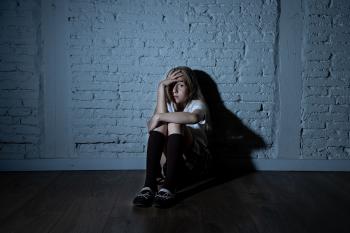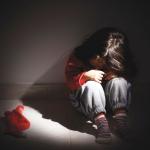 Most people have had at least one bad relationship in their life. For most individuals, this bad relationship was a blip on the radar, with the experience chalked up to a lesson learned.
Most people have had at least one bad relationship in their life. For most individuals, this bad relationship was a blip on the radar, with the experience chalked up to a lesson learned.However, there are also people who find themselves in the same toxic relationship over and over again. The partner may look different on the surface. Still, his behaviors, abusive ways, or emotional unavailability are exactly the same as the partners before.
Why do some people bounce back after a toxic relationship and move on to a healthy relationship while others are destined to repeat the same negative relationship cycle? The surprising answer is that this behavior may be directly related to early trauma in your childhood years.
The Legacy of Childhood Trauma
Childhood trauma is more common than most people assume. For example, in a 2017 study by Grant Sara and Julia Lappin published in The Lancet Public Health Journal, one in four adults reported they were physically abused as kids, and one in eight reported sexual abuse. As stated in my book, Love Smacked: How to Stop the Cycle of Relationship Addiction and Codependency to Find Everlasting Love . “When we hold on to unresolved pain from childhood, especially trauma and abandonment, these wounds reemerge in adult relationships as toxic shame.”
Other types of childhood trauma can include:
· Loss of a parent – the death of a close family member or a significant person in a child’s life can create trauma if the child is not allowed to grieve or does not receive the care and attention required to work through the grief.
· Multiple homes – children that are moved from home to home either within a family or through the foster care system are often traumatized as they have no place of comfort or belonging.
· Bullying and fear – this can be bullying from siblings, parents, or even within a community. This can be a single significant event or chronic types of fearful situations without the parental support and care needed for the child.
· Abandonment – children that are abandoned with friends, relatives, strangers, or even the other parent can be traumatized very early in life.
· Addicted parents – children that live in homes where they must take care of siblings and even their parents are often traumatized as they feel overwhelmed and helpless.
Attachment Styles and Choosing Partners
Children that experience trauma early in life develop an anxious attachment style, which is sometimes called an anxious-preoccupied attachment style. These people are extremely fearful of being on their own as they obtain their validation and reason in life from being with someone else. Although they believe they need their partner for their identity, they often feel the partner does not care enough.
Signs of an anxious or anxious preoccupied attachment style include:
· Extreme desire to please – these individuals will do anything to win the approval of their emotionally distant partners. This may include staying in physical abuse and toxic relationships.
· Clingy – the need to be physically close to the partner. This can initially seem attractive to some partners, but it quickly becomes overwhelming and smothering.
· Constant communication – in today’s always plugged-in world, this can include constant calling, texting, posting on social media, and even electronically tracking their partner.
· Constant reassurances – there is a constant need for reassurance the relationship is fine. This can become a constant in the relationship.
· Jumping into relationships – anxious attachment styles have short dating periods and then immediately into a serious and significant relationship.
These types of individuals attract people who need attention. The narcissist is the prime example of an individual who seeks out a person with an anxious attachment style as they crave the need for attention.
Tips Identifying Toxic Relationships
It can be difficult to identify the signs of a toxic relationship if your childhood trauma has made it difficult to see the red flags in the relationship. Here are some tips you can use to determine if you are in a relationship with a toxic partner:
· Constant arguments – despite all you do to try to please the other person, it is never enough. You are always blamed for any difficulties or negativity.
· Jealousy – despite ignoring you or being emotionally distant, your partner may be very jealous of your relationships with others.
· Emotionally exhausted – taking responsibility for the happiness of another person while ignoring your own wellbeing is emotionally draining.
· Inability to end the relationship – if you believe you have to be in the relationship for your own happiness, despite being unhappy, and cannot break off the relationship, you may be in a toxic situation.
Working with a therapist or counselor with experience in healing from childhood trauma is perhaps the best way to identify the problem and begin the healing process. You can also consider joining my online group coaching program Wake Up Recovery where you will receive support from me, as well as those like minded souls who have been where you have been.
Sherry Gaba, LCSW and Transformation Coach


